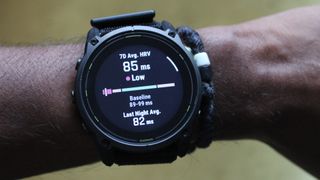
Share Tweet Share Share Email When it comes to traffic accidents, the aftermath can be both physically and emotionally taxing. While recovery from injuries and dealing with the insurance company are immediate concerns, one crucial element often overlooked by accident victims is the documentation. In legal cases, thorough and organized documentation can make the difference between a successful claim and a lost opportunity.
For those working with a traffic accident lawyer , understanding the role documentation plays can be key to ensuring that their case has the best possible chance of success. The Foundation of Your Case: Evidence Preservation In the legal world, the strength of a case often hinges on the quality and quantity of evidence presented. Documentation is the most reliable form of evidence you can provide.

Traffic accident lawyers depend on the facts—proof of the accident itself, evidence of your injuries, and any supporting testimony or expert analysis—to build a compelling case. Without solid documentation, even the best attorney can struggle to represent you effectively. While police reports, medical records, and insurance paperwork are typically the first pieces of documentation people think of, they are just the tip of the iceberg.
In fact, documentation starts the moment an accident occurs. If you’re involved in a collision, keeping track of everything from the initial crash to ongoing medical treatment is essential. Critical Documents for Your Traffic Accident Lawyer Police Reports: The Official Record A police report is often considered one of the most important pieces of documentation in any traffic accident case.
This document, created by the responding officers, includes details about the accident, such as the location, time, date, and statements from witnesses and drivers involved. For a traffic accident lawyer, the police report provides critical information regarding the circumstances of the crash, and it can be invaluable in proving fault. Medical Records: Proof of Injury and Treatment After a traffic accident, injuries are often not immediately visible or apparent.
A thorough medical examination is necessary to assess injuries, even those that might manifest later (such as whiplash or traumatic brain injury). Keeping detailed medical records—doctor’s notes, hospital reports, diagnostic tests, and prescribed treatments—can demonstrate the severity of your injuries and how they’ve impacted your daily life. Medical records also help attorneys understand the long-term nature of your injuries, which is crucial when calculating compensation for future medical expenses, pain, and suffering.
Photos and Videos: Visual Evidence of the Scene In the age of smartphones, capturing photos and videos of the accident scene is more important than ever. Images of vehicle damage, skid marks, road conditions, and injuries provide a detailed, visual representation of the aftermath. Accident lawyers often rely on this type of evidence to recreate the crash scene, especially in cases where fault is disputed.
Video footage from traffic cameras or bystanders’ recordings can also play a pivotal role in establishing a timeline or identifying negligent behavior. Insurance Documents: Coverage and Liability Details When negotiating with insurance companies, your lawyer will need to understand the specifics of your policy, as well as the other party’s coverage. This includes details of liability coverage, medical payments coverage, and the limits of each party’s policy.
Without these documents, it’s difficult for your attorney to understand what is at stake in the settlement process. Additionally, if your insurance company is failing to pay your claim adequately, these documents will help your lawyer navigate legal recourse. Witness Statements: Corroborating Your Version of Events Witness testimony can be one of the most powerful forms of documentation in an accident case.
Eyewitnesses can provide an unbiased perspective on the incident, which can be instrumental in determining fault. For your lawyer, witness statements help corroborate your version of events and may even contradict the other party’s account of the crash. It’s important to collect the names, contact information, and statements of any witnesses as soon as possible after the accident.
Accident Reconstruction Reports: Technical Analysis of the Crash In some cases, a traffic accident lawyer may need to hire an accident reconstruction expert. These professionals use scientific methods to determine how an accident occurred. They analyze vehicle speeds, angles, traffic patterns, and road conditions to provide a detailed report on the cause of the crash.
This kind of technical documentation can be particularly useful in complex cases, such as multi-vehicle collisions or when the cause of the accident is disputed. How Documentation Influences Case Strategy While documentation is vital to proving your case, it also plays a critical role in shaping your lawyer’s strategy. The more complete and organized your records, the more time your attorney can focus on the legal aspects of your case, rather than spending time chasing down missing documents or trying to piece together a fragmented timeline.
A well-documented case allows your traffic accident lawyer to: Assess the Strength of Your Case : With clear evidence, your attorney can quickly determine whether your case is strong enough to pursue in court or if a settlement is the best option. If key documents—such as police reports or medical records—are missing or incomplete, your lawyer may advise against taking the case to trial, as it could be difficult to convince a judge or jury of your position. Negotiate More Effectively : Having comprehensive records in hand gives your lawyer leverage when negotiating with insurance companies or opposing counsel.
The documentation provides a factual basis for claiming damages, which strengthens your position and increases the likelihood of a favorable settlement. Calculate Fair Compensation : Your documentation will also allow your lawyer to accurately assess the financial impact of your injuries. This includes both immediate medical bills and future expenses related to ongoing care, rehabilitation, and lost wages.
Without precise records, it’s difficult to gauge the full extent of your damages. Documentation as a Shield Against Delays and Disputes One of the most frustrating aspects of a traffic accident case is the possibility of delays—either from the insurance company or the opposing party. Without proper documentation, these delays are even more likely, as the responsible parties will often dispute claims or attempt to avoid responsibility.
For example, if you don’t have a police report that confirms the other driver’s fault, they may attempt to shift blame or minimize the impact of the accident on your life. Similarly, without medical documentation, the insurance company might argue that your injuries were not as severe as you claim, or that they are pre-existing conditions. Solid documentation helps mitigate these risks and provides a clear defense against these tactics.
The Human Element: Organization and Diligence While it’s tempting to focus on the legal strategy alone, the human element of documentation is just as important. In many cases, accident victims are overwhelmed by the physical pain, emotional trauma, and logistical complications following a crash. As a result, maintaining organized records often falls by the wayside.
However, by staying diligent about documenting everything—no matter how small the detail—victims can ensure that their legal team has what it needs to secure a favorable outcome. Keeping a personal log of events, interactions with insurance companies, or any new symptoms or treatments can be a valuable resource for both you and your attorney. Ending the Case: A Turning Point in Your Recovery In many ways, your traffic accident case is a process of closing one chapter and opening another.
Just as physical healing follows an accident, legal closure marks the end of the financial and emotional uncertainty that follows a crash. By prioritizing documentation, you not only ensure that your legal team has the tools they need to advocate for you, but you also help pave the way for the closure and compensation that will support your recovery journey. The key takeaway? In the aftermath of a crash, it’s not just about getting back on your feet physically—it’s about setting the stage for a successful case through careful, consistent documentation.
Your future self will thank you for the effort you put into gathering and organizing these critical records today . Related Items: Documentation , Traffic Accident Case Share Tweet Share Share Email Recommended for you How to Maintain and Care for Your High-End Audio Speakers Cultural Preservation in a Digital Age: How Technology is Safeguarding Heritage Sites BizPlan AI: Pioneering the Frontier of AI-Driven Business Documentation Comments.















